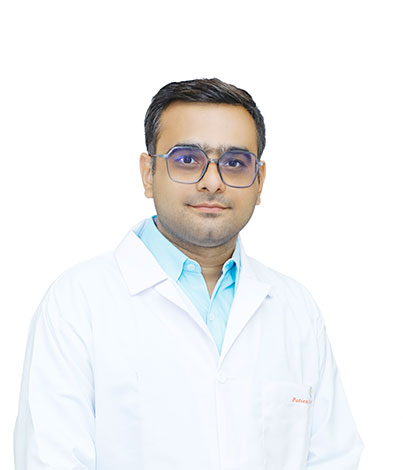Management of Pancreaticobiliary Disorders and Cancers in Indore
Pancreaticobiliary Restoration, Renewed Vitality, and Enhanced Well-being with Pancreaticobiliary Disorder Treatments at Jupiter Hospital
Jupiter Hospital leads the way in providing comprehensive care for the effective management of Pancreaticobiliary Disorders and Cancers treatment in Indore. Our specialized medical team has a strong track record of addressing these complex conditions, offering a comprehensive range of medical services and therapeutic solutions.
Pancreaticobiliary Disorders and Cancers encompass a wide spectrum of diseases associated with the liver, gallbladder, and pancreas, which play essential roles in the digestive system's nutrient absorption. Our Pancreaticobiliary Disorders and Cancer hospital in Indore is dedicated to addressing a diverse array of conditions, including Ascites, Cirrhosis, Fatty liver disease (Nonalcoholic Steatohepatitis), Gallstones, disorders related to the gallbladder, Hepatitis, Pancreatitis, Autoimmune Liver Disease, and Wilson's Disease.
Common symptoms of liver and pancreatic disorders include abdominal pain, backache, bloating, cholestasis (impaired or obstructed bile flow), dark-colored urine, clay-colored stool, fever, abdominal fluid accumulation, indigestion, jaundice (yellowing of the skin and eyes), liver enlargement, loss of appetite, and liver failure.
Gastrointestinal (GI) malignancies encompass cancers affecting various parts of the digestive tract, including the stomach, large and small intestines, pancreas, colon, liver, rectum, anus, and biliary system. Early-stage GI cancer often presents with no discernible symptoms and is typically identified through routine screenings. As the disease progresses, symptoms may manifest, such as abdominal cramping or pain, bloody or dark stools, changes in bowel habits, swallowing difficulties, digestive irregularities, jaundice (yellowing of the skin and eyes), vomiting, nausea, fatigue, weight loss, and diminished appetite.
Early detection is pivotal in thwarting the advancement of advanced GI cancer. Screening techniques, such as colonoscopy, are instrumental in identifying colon and rectal cancer during its most treatable stages, often before symptoms become apparent. In addition to colonoscopy, alternative screening methods are available, and patients are encouraged to consult their healthcare professionals to ascertain the most suitable approach.
The Pancreaticobiliary Disorders and Cancers Hospital in Indore remains unwavering in its commitment to offering comprehensive care for Pancreaticobiliary Disorders and Cancers treatment in Indore, ensuring optimal outcomes for patients in need.
















 View Map
View Map Book an Appointment
Book an Appointment Find a Doctor
Find a Doctor Health Check-up
Health Check-up








 Find a Doctor
Find a Doctor Health Checkup
Health Checkup Book an Appointment
Book an Appointment